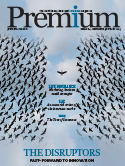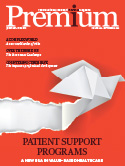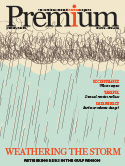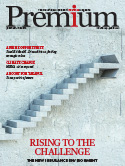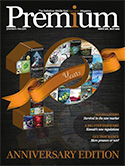IBG: Focus on Customer-Centric Offerings
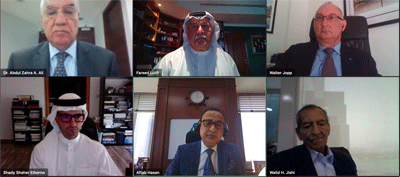
The Isurance Business Group emphasised on the need for customer-oriented best practices while focusing on digitalisation to ensure sustainable growth.
The Insurance Business Group recently held a webinar on the topic ‘The Impact of COVID-19 and Initiatives by the Insurance Industry’ focusing on measures to build a more sustainable, technology-driven industry that capitalises on innovation and access to information.
Delivering the keynote address, Shady Shaher Elborno, head of Macro Strategy at Emirates NBD, gave an overview of the global and regional economic status quo with reference to effects of the pandemic. Quoting various PMI indexes, studies by rating agencies among other sources, he said that the future seemed to suggest some stabilisation and growth for some countries in the region, while others may suffer more debilitating effects owing to lack of diversification from oil. “While business activity has picked up again following the relaxation of Coronavirus restrictions, new work growth in the PMI ratings was relatively muted, this is suggesting that underlying demand conditions remain relatively weak. Employment in the private sector continues to decline as firms look to cut costs in the face of lower oil revenues and this will definitely weigh on consumption and investment growth forward,” he said. He added the increase in unemployment figures would impact all sectors including insurance.
Following the keynote address a panel discussion ensued, moderated by Aftab Hasan, secretary general of the Insurance Business Group, CEO of Arya Insurance Brokerage Co. (Bayzat) and chairman of Risk Exchange (DIFC) Limited. The discussion veered in the direction of the need for adapting to the needs of technology-driven business, lending transparency and access to information. ““The current COVID-19 situation is unprecedented. Aside from the tragic impact on human lives, the pandemic has amplified and accelerated the slowdown of global growth with consequences across countries, economies and industries. Most organisations including insurance companies have moved their entire workforces to operating remotely, and mobilised quickly to digitise their operations and customer interactions. It is those companies that focus on change for a future ready world that will emerge as winners,” said Walter Jopp, CEO-Middle East at Zurich Insurance Company.
Reflecting on the impact to the insurance industry from a solvency perspective, Dr. Abdul Zahra Al Ali, CEO of National General Insurance, said, “Pressure on the economy is going to be reflected on the insurance industry in the UAE. Motor and medical represent 70 percent of the market. If you look to medical the number of claims related to COVID-19 increased substantially, but other claims have reduced. Claims in motor reduced substantially due to lockdown among other reasons.” He added that the price war and competition in the market were tremendous in the current scenario. “We have never seen a price reduction in motor like what we have seen these days regardless of the Insurance Authority regulation, lowering of premiums and so on. There is no control on the pricing, or claims.” He predicted that such price wars would reflect on the solvency margins of companies where receivables would increase substantially and the payments of premiums would be effectively delayed.
Calling attention to the variety of claims received during this year, Walid Jishi, founder and managing director of Arab Loss Adjusters and vice chairman of the IBG said, “The threat posed by the pandemic will likely lead to potential human misbehaviour and lack of duty of care which will impact the Insurance Industry and may give risk to fraud threats.” He added that comparatively the lessons that could be learnt in the policy and extension wordings warranted consideration by taking advantage from the lessons learnt so far.
Speaking about the measures taken by the insurance regulator together with the technical committees of the Emirates Insurance Association (EIA), Fareed Lutfi, secretary general of the EIA emphasised that the industry was focusing as always on the consumer, while the Insurance Authority gave discounts, extensions in deadlines and other benefits to ensure continuity of the insurance sector during the pandemic.
“While the actual impact of Covid-19 is expected to be realised towards the end of 2020, it is believed the industry is capable of enduring this situation while encountering many decision point challenges. So, as we navigate through these difficult, extraordinary circumstances and the resulting domino effect repercussions, communication between insurers, regulators, clients and partners has been very consistent over the past few months; an excellent approach based on trust, respect and open conversations with one another, as we all need to work together to survive these challenges.
“This crisis is also being credited for driving digital transformation and forcing a multifaceted strategic planning focus across the insurance industry. We have noticed that insurance bodies are fast-tracking automation and the digitalisation process and companies are using technology to improve insurance industry efficiency and lower their cost. Thinking out of the box, or better said, creating a new, virtual box by going digital with technology at the front of your insurance entity strategic plans will make a vast difference in surviving and achieving success during these challenging times,” Lutfi added.
The panel discussion ended with a consensus on issuing guidelines for best practices to ensure professionalism within the industry.
“We all want an insurance industry that is innovative, sustainable and competitive, one that consumers can trust so that they can have confidence that the everyday services they need are provided in a straightforward manner. This means that a successful market has to be built on delivering the commitment that we make to our customers in a fair and transparent way,” Hasan said.









